第92章 Appendix I:Production,Consumption,Distribution,Exc
As regards art,it is well known that some of its peaks by no means correspond to the general development of society;nor,do they therefore to the material substructure,the skeleton as it were of its organisation.
For example the Greeks compared with modern [nations),or else Shakespeare.It is even acknowledged that certain branches of art,e.g.,the epos ,can no longer be produced in their epoch-making classic form after artistic production as such has begun;in other words that certain important creations within the compass of art are only possible at an early stage in the development of art.If this is the case with regard to different branches of art within the sphere of art itself,it is not so remarkable that this should also be the case with regard to the entire sphere of art and its relation to the general development of society.The difficulty lies only in the general formulation of these contradictions.As soon as they are reduced to specific questions they are already explained.
Let us take,for example,the relation of Greek art,and that of Shakespeare,to the present time.We know that Greek mythology is not only the arsenal of Greek art,but also its basis.Is the conception of nature and of social relations which underlies Greek imagination and therefore Greek (art)possible when there are self-acting mules,railways,locomotives and electric telegraphs?
What is a Vulcan compared with Roberts and Co.,Jupiter compared with the lightning conductor,and Hermes compared with the Credit Mobilier ?
All mythology subdues,controls and fashions the forces of nature in the imagination and through imagination;it disappears therefore when real control over these forces is established.What becomes of Fama side by side with Printing House Square?Greek art presupposes Greek mythology,in other words that natural and social phenomena are already assimilated in an unintentionally artistic manner by the imagination of the people.
This is the material of Greek art,not just any mythology,i.e.,not every unconsciously artistic assimilation of nature (here the term comprises all physical phenomena,including society);Egyptian mythology could never become the basis of or give rise to Greek art.But at any rate (it presupposes)a mythology;on no account however a social development which precludes a mythological attitude towards nature,i.e.,any attitude to nature which might give rise to myth;a society therefore demanding from the artist an imagination independent of mythology.
Regarded from another aspect:is Achilles possible when powder and shot have been invented?And is the Iliad possible at all when the printing press and even printing machines exist?Is it not inevitable that with the emergence of the press bar the singing and the telling and the muse cease,that is the conditions necessary for epic poetry disappear?
The difficulty we are confronted with is not,however,that of understanding how Greek art and epic poetry are associated with certain forms of social development.The difficulty is that they still give us aesthetic pleasure and are in certain respects regarded as a standard and unattainable ideal.
An adult cannot become a child again,or he becomes childish.But does the naivete of the child not give him pleasure,and does not he himself endeavour to reproduce the child's veracity on a higher level?Does not the child in every epoch represent the character of the period in its natural veracity?Why should not the historical childhood of humanity,where it attained its most beautiful form,exert an eternal charm because it is a stage that will never recur?There are rude children and precocious children.
Many of the ancient peoples belong to this category.The Greeks were normal children.The charm their art has for us does not conflict with the immature stage of the society in which it originated.On the contrary its charm is a consequence of this and is inseparably linked with the fact that the immature social conditions which gave rise,and which alone could give rise,to this art cannot recur.
Written between the end of August and the middle of September 1857Engels'Review of Marx's Book Karl Marx's A CONTRIBUTION TO THE CRITIQUE OF POLITICAL ECONOMYFREDERICK ENGELS (Review of)KARL MARX,"A CONTRIBUTION TO THE CRITIQUE OF POLITICAL ECONOMY"I [Das Volk ,30No.14,August 6,1859]